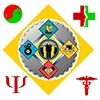
The Full Range Leadership (MLQ) Assessment
Leadership
In the dynamic and ever-evolving business landscape, effective leadership is crucial for organizational success. To identify and develop effective leaders, organizations often turn to assessment tools. One such tool is the Full Range Leadership Assessment (MLQ), developed by Professors Bernie Bass and Bruce Avolio. This article explores the key features and benefits of the Full Range Leadership Assessment (MLQ) and its role in nurturing leadership potential.
1. Understanding the Full Range Leadership Assessment:
The Full Range Leadership Assessment is a comprehensive tool designed to evaluate an individual’s leadership capabilities across a spectrum of competencies. It aims to provide organizations with a holistic (full range) view of a leader’s strengths and areas for improvement.
2. Key Features of the Range Leadership Assessment:
(a) Multi-Dimensional Evaluation: The Full Range Leadership Assessment evaluates leaders across a wide range of competencies. This multi-dimensional approach ensures a comprehensive assessment of leadership potential.
(b) Self-Assessment and 360-Degree Feedback: The assessment process includes both self-assessment and feedback from peers, subordinates, and superiors. This 360-degree feedback fosters a more accurate and well-rounded evaluation of leadership skills.
(c) Normative Data: The Full Range Leadership Assessment provides normative data that allows organizations to benchmark leaders against a larger population. This data-driven approach helps identify areas of strength and areas that require development, providing valuable insights for leadership development initiatives.
(d) Developmental Resources: Along with the assessment report, the Full Range Leadership Assessment provides developmental resources such as personalized feedback, coaching tips, and recommended development activities. These resources empower leaders to build upon their strengths and address their developmental needs.
3. Benefits of the Full Range Leadership Assessment:
(a) Identification of Leadership Potential: The Full Range Leadership Assessment aids organizations in identifying individuals with high leadership potential. By evaluating a specific range of competencies, it provides a detailed view of an individual’s leadership capabilities, helping organizations make informed decisions about leadership placements.
(b) Personalized Development Plans: The assessment report and accompanying resources enable leaders to create personalized development plans. By focusing on specific areas for improvement, leaders can enhance their skills and become more effective in their roles.
(c) Enhanced Self-Awareness: The Full Range Leadership Assessment encourages self-reflection and introspection. By understanding their strengths and weaknesses, leaders can gain greater self-awareness, leading to improved decision-making, communication, and overall leadership effectiveness.
(d) Improved Team Performance: Effective leadership has a direct impact on team performance. By using the Full Range Leadership Assessment, organizations can identify leaders who possess the necessary competencies to inspire and motivate their teams. This, in turn, leads to improved productivity, collaboration, and employee satisfaction.
4. Considerations for Implementation:
(a) Clear Objectives: Before implementing the Full Range Leadership Assessment, organizations should clearly define their objectives and align the assessment with their leadership development strategy. This ensures that the assessment process is tailored to address specific organizational needs.
(b) Confidentiality and Trust: To obtain honest and unbiased feedback, confidentiality and trust are essential. Organizations must assure participants that their responses will be kept confidential and used solely for developmental purposes. Full Range Leadership (MLQ) Assessments should only be complted by indepenant consultants.
(c) Integration with Developmental Initiatives: The Full Range Leadership Assessment should be integrated into a broader leadership development program. This allows leaders to leverage the assessment results and resources to create meaningful and impactful development plans.
The Full Range Leadership Model (FRLM) (Bass and Avolio) provides a very robust framework for this transformational journey. It provides a sound and practical toolkit for leadership development and is supported by a very extensive evidence base. The broad body of evidence that underpins the FRLM and spans more than 15 years, gives you the assurance this is not a fad that will simply be replace by the next trendy idea in a short time frame. Click Here to see the Helpful Professor’s take on the Full Range Leadership Model.
Click Here to review David G Broadbent’s CV.

Edward (Teddy), San Francisco
![]()
“Our organization decided to conduct leadership assessments within middle and senior management. For some reason an Australian leadership consultant was the guy selected to run the process. This was David Broadbent and he used a tool called the MLQ. I had never heard of the MLQ although our HR guy had used it before and he had also heard of David. Apparently David had been quite vocal on the internet saying how leadership assessments can actually be organizationally toxic if not done properly. I won’t argue with that. Anyway, the MLQ was just a tool (maybe a pretty good one). The value I gained was sitting with this Aussie guy talking all things leadership. He was sensitive to what was going on inside the business and was able to get me thinking about applied leadership without even trying. How this guy was able to tell leadership stories using Alcatraz as a metaphor just blew me away. Thanks David.”


